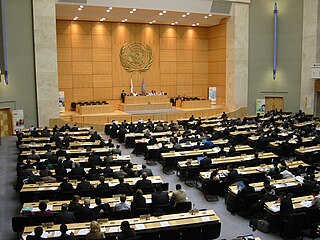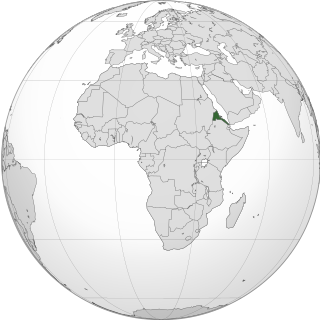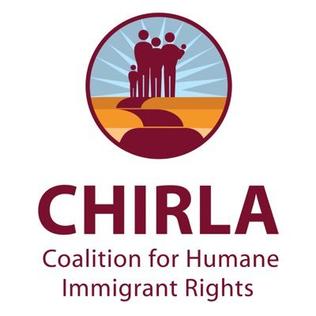
The World Summit on the Information Society (WSIS) was a two-phase United Nations-sponsored summit on information, communication and, in broad terms, the information society that took place in 2003 in Geneva and in 2005 in Tunis. One of its chief aims was to bridge the global digital divide separating rich countries from poor countries by spreading access to the Internet in the developing world. The conferences established 17 May as World Information Society Day.

The National Council of the Churches of Christ in the USA, usually identified as the National Council of Churches (NCC), is the largest ecumenical body in the United States. NCC is an ecumenical partnership of 38 Christian faith groups in the United States. Its member communions include Mainline Protestant, Orthodox, African American, Evangelical, and historic peace churches. Together, they encompass more than 100,000 local congregations and 40 million adherents. It began as the Federal Council of Churches in 1908, and expanded through merger with several other ecumenical organizations to become the National Council of Churches in 1950.
This is a list of notable events in the history of LGBT rights that took place in the year 2003.
Immigration reduction refers to a movement in the United States that advocates a reduction in the amount of immigration allowed into the country. Steps advocated for reducing the numbers of immigrants include advocating stronger action to prevent illegal entry and illegal immigration, and reductions in non-immigrant temporary work visas. Some advocate a tightening of the requirements for legal immigration requirements to reduce total numbers, or move the proportions of legal immigrants away from those on family reunification programs to skills-based criteria. What separates it from others who want immigration reform is that reductionists see immigration- or one of its forms- as being a significant source of social, economic, and environmental problems, and wish to cut current immigration levels.
The American-Arab Anti-Discrimination Committee (ADC) states that it is "the largest Arab American grassroots civil rights organization in the United States." According to its webpage it is open to people of all backgrounds, faiths and ethnicities and has a national network of chapters and members in all 50 states. It claims that three million Americans trace their roots to an Arab country. The ADC seeks to “empower Arab Americans, defend the civil rights of all people, promote Arab cultural heritage, promote civic participation, encourage a balanced US policy in the Middle East and support freedom and development in the Arab World.” ADC has a number of programs to combat discrimination and bias against Arab-Americans, including stereotypes of Arabs in the United States. The ADC is a member of the Leadership Conference on Civil and Human Rights and holds a seat on the Leadership Conference National Board of Directors.
Out & Equal Workplace Advocates is a United States lesbian, gay, bisexual and transgender (LGBT) workplace equality non-profit organization headquartered in San Francisco, California.
The National Coalition to Abolish the Death Penalty (NCADP) is a large organization dedicated to the abolition of the death penalty in the United States. Founded in 1976 by Henry Schwarzschild, the NCADP is the only fully staffed nationwide organization in the United States dedicated to the total abolition of the death penalty in the country. It also provides extensive information regarding imminent and past executions, death penalty defendants, numbers of people executed in the U.S., as well as a detailed breakdown of the current death row population, and a list of which U.S. state and federal jurisdictions use the death penalty.
Japan is a constitutional monarchy. According to Ministry of Justice (MOJ) figures, the Japanese Legal Affairs Bureau offices and civil liberties volunteers dealt with 359,971 human rights related complaints and 18,786 reports of suspected human rights violations during 2003. Many of these cases were ultimately resolved in the courts. Human rights issues occur in present-day Japan, as modernization history of Japan only reached in the non-humanity areas with the rise of military expansion of Empire of Japan in the 20th century.

Lesbian, gay, bisexual, and transgender (LGBT) rights in the United States have significantly progressed over time, with the majority of the progress on LGBT rights having taken place in the late 20th century and early 21st century. While the United States is considered to be among the most liberal countries in the world with regards to LGBT rights today, they continue to vary by jurisdiction, and thus lag behind many other countries in the Western world with more liberal laws on LGBT rights. Since June 26, 2003, sexual activity between consenting adults of the same sex as well as same-sex adolescents of a close age has been legal nationwide, pursuant to the U.S. Supreme Court ruling in Lawrence v. Texas. As of June 26, 2015, all states license and recognize marriage between same-sex couples as a result of the Supreme Court decision in Obergefell v. Hodges.
The International Federation for Human Rights is a non-governmental federation for human rights organizations. Founded in 1922, FIDH is the second oldest international human rights organisation worldwide after Anti-Slavery International. As of 2016, the organization is made up of 184 member organisations in over 100 countries.

The Uniting American Families Act is a U.S. bill to amend the Immigration and Nationality Act of 1952 to eliminate discrimination in immigration by permitting permanent partners of United States citizens and of lawful permanent residents to obtain lawful permanent resident status in the same manner as spouses of citizens and of lawful permanent residents and to penalize immigration fraud in connection with permanent partnerships. If the partnership ends within two years, the sponsored partner's immigrant status would be subject to review.

Lesbian, gay, bisexual, and transgender (LGBT) persons in Eritrea face legal challenges not experienced by non-LGBT citizens. Homosexual acts are illegal in Eritrea, punishable by up to 3 years in prison. LGBT persons are regularly prosecuted by the government and additionally face stigmatization among the broader population.
The Woodhull Freedom Foundation, also known as the Woodhull Sexual Freedom Alliance, is an American non-profit organization founded in 2003 that advocates for sexual freedom as a fundamental human right. The organization is based in Washington, D.C., United States. Named after an influential member of the American woman's suffrage movement, Victoria Woodhull, its focus includes analyzing groups and individuals that seek to perpetuate a culture of sexual repression.

The Coalition for Humane Immigrant Rights of Los Angeles also known, as CHIRLA is a Los Angeles county-based organization focusing on immigrant rights. While the organization did evolve from a local level, it is now recognized at a national level. The Coalition for Humane Immigrant Rights of Los Angeles organizes and serves individuals, institutions and coalitions to build power, transform public opinion, and change policies to achieve full human, civil and labor rights. The Coalition for Humane Immigrant Rights of Los Angeles also has aided in passing new laws and policies to benefit the immigrant community regardless of documented status.
Immigration equality is a citizens' equal ability or right to immigrate their family members. It also applies to fair and equal execution of the laws and the rights of non-citizens regardless of nationality or where they are coming from. Immigration issues can also be a LGBT rights issue, as government recognition of same-sex relationships vary from country to country.

The Fighting Discrimination Program of Human Rights First focuses on the violence known as hate crimes or bias crimes. Because equality is a cornerstone of human rights protection, discrimination in all its forms is a violation of human rights. Discrimination can take the form of violence generated by prejudice and hatred founded upon a person's race, ethnicity, religious belief, sexual orientation, gender, disability, age or other such factors.

Discussions of LGBT rights at the United Nations have included resolutions and joint statements in the United Nations General Assembly and the United Nations Human Rights Council (UNHRC), attention to the expert-led human rights mechanisms, as well as by the UN Agencies.

Human rights in the United States comprise a series of rights which are legally protected by the Constitution of the United States, including the amendments, state constitutions, conferred by treaty and customary international law, and enacted legislatively through Congress, state legislatures, and state referenda and citizen's initiatives. Federal courts in the United States have jurisdiction over international human rights laws as a federal question, arising under international law, which is part of the law of the United States.

Immigration detention in the United States began in the 1890s at Ellis Island. It was used a permanent holding facility for foreign nationals throughout the second world war, but fell into disuse in the 1950s. In the 1980s, Ronald Reagan reacted to the mass migration of asylum seekers arriving in boats from Haiti by establishing a program to interdict. As the number of undocumented immigrants who were fleeing economic and political conditions increased, President Bush Sr attempted to find a regional location to handle the influx. The United Nations High Commissioner for Refugees arranged for several countries in the region—Belize, Honduras, Trinidad and Tobago, and Venezuela—to temporarily provide a safe haven for Haitians, however the Coast Guard was quickly overwhelmed, and by November 18 1991, the United States forcibly returned 538 Haitians to Haiti. These options also proved inadequate for the sheer numbers of Haitians fleeing their country, and the Coast Guard took them to the U.S. naval base in Guantanamo, Cuba, where they were pre-screened for asylum in the United States.
Discrimination is the act of someone being prejudiced towards another. This term is used to highlight the difference in treatment between members of different groups when one group is intentionally singled out and treated worse, or not given the same opportunities. Attitudes toward minorities have been marked by discrimination historically in the United States. Many forms of discrimination have come to be recognized in U.S. society, on the basis of national origin, race, gender, and sexuality in particular.














